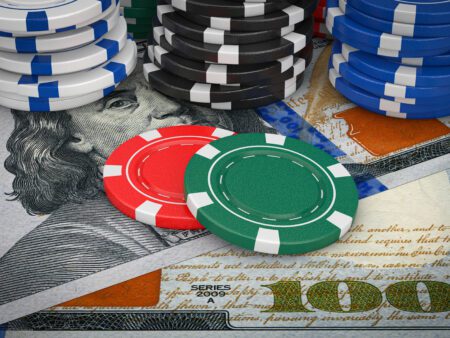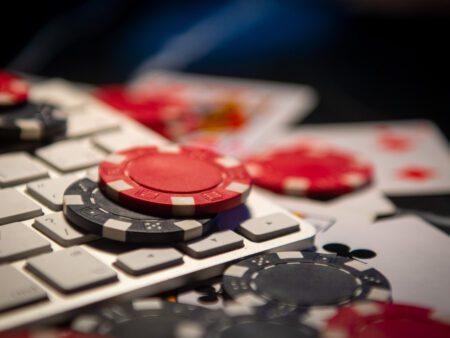Delve deeper into the psychology of poker, understanding how to analyze your opponents’ behavior to enhance your poker strategy.
Understanding Your Opponents: Analyzing Poker Player Behavior
In the intriguing world of poker, sometimes the cards you hold are less important than the people you play with. Understanding the behavior patterns of your opponents can give you an edge even when the deck isn’t in your favor. Consider this: poker is not just about your cards; it is also a game of psychology.
The Power of Observation
The first step in reading poker player behavior is observation. Keeping an eye on how each player bets, reacts, and changes their strategy during the game can provide invaluable insights into their playstyle. Do they bet aggressively regardless of their hand? Are they conservative, folding unless they have a strong hand? These patterns begin to form a character and understanding that person’s character can give you a distinct advantage. It’s all about observation and interpretation.
Understanding Betting Patterns
A player’s betting pattern can reveal a lot about their strategy and the strength of their hand. Conservative players, often known as ‘tight’ players, rarely take risks and prefer to bet when they are confident they have a strong hand. On the other side are ‘loose’ players who play a wide range of hands, betting more aggressively even with a weaker hand. Noticing these patterns can help you predict your opponent’s moves and plan your own accordingly.
Recognizing Bluffs
Bluffing is an integral part of the game that can throw off even seasoned players, but there are ways to spot a bluff. Often people who bluff have noticeable changes in their physical behavior. These ‘tells’ could be anything from nervous tics, changes in their speech, covering their face, or overly confident gestures. However, remember that not everyone has visible tells, and some savvy players may even fake these signs to mislead their opponents.
,
Emotional Control
Good poker players know how to control their emotions and not let them influence their game. However, not every player has mastered this skill, and it is these players that reveal information through their emotional reactions. Anger, frustration, or too much excitement can all be signs that give away a player’s hand.
For a game that involves as much luck vs skill imbalance as poker, the true winners often lie in those that can expertly analyze their fellow players. In poker, understanding and interpreting human behavior can make all the difference between folding and raking in the pot.
Securing the Psychological Advantage
A fundamental principle of poker psychology is the understanding that poker is more than just a card game; it is a psychological showdown. Success hinges on your ability to observe your opponents, decipher their behaviors, identify patterns, and make informed decisions. And the first step to gaining this psychological edge is through observation.
Patterns and Betting Habits
An opponent’s betting habits can provide a wealth of information. Are they cautious and fold more often than not? Do they bluff frequently, or are they more careful with their chips? Recognizing these patterns will allow you to anticipate your opponent’s moves and plan your strategies accordingly.
The Art of Non-verbal Communication
In poker, actions indeed speak louder than words. From a shift in a player’s seat, a quick glance, a tremble of the hand, to a change in breathing patterns – these non-verbal cues, often known as ‘tells,’ can provide valuable insights into a player’s hand. Mastering the art of reading these signs is an invaluable skill in poker. However, as a word of caution, seasoned players may use false tells to trick less experienced opponents, so ensure to use this strategy judiciously.
The Role of Emotions
Emotions play a significant role in poker. Elation, disappointment, anger, frustration – while strong players can mask their feelings, not everyone can. An emotional reaction can often provide clues to the strength of a player’s hand. Monitor your opponents’ emotional expressions and use these cues to your strategic advantage.
Mastering Your Own Behaviour
While mastering the interpretation of your opponent’s behavior is key, equally importantly is managing your own. Keep your emotions in control, mask your tells, and keep your opponents guessing. Remember, the psychological battle often begins with you.
In conclusion, poker is a multi-faceted game where the understanding of cards is as important as, if not more than, decoding human behavior. Mastering the art of reading poker player behavior doesn’t come overnight, but with time and experience, it becomes an invaluable part of your poker arsenal.
Ready to apply these insights on the poker table? Play now and put your skills to the test. And remember, be observant, keep your emotions at bay and turn the game in your favor. As they say in poker, ‘It’s not the hand you’re dealt, but how you play it.’










